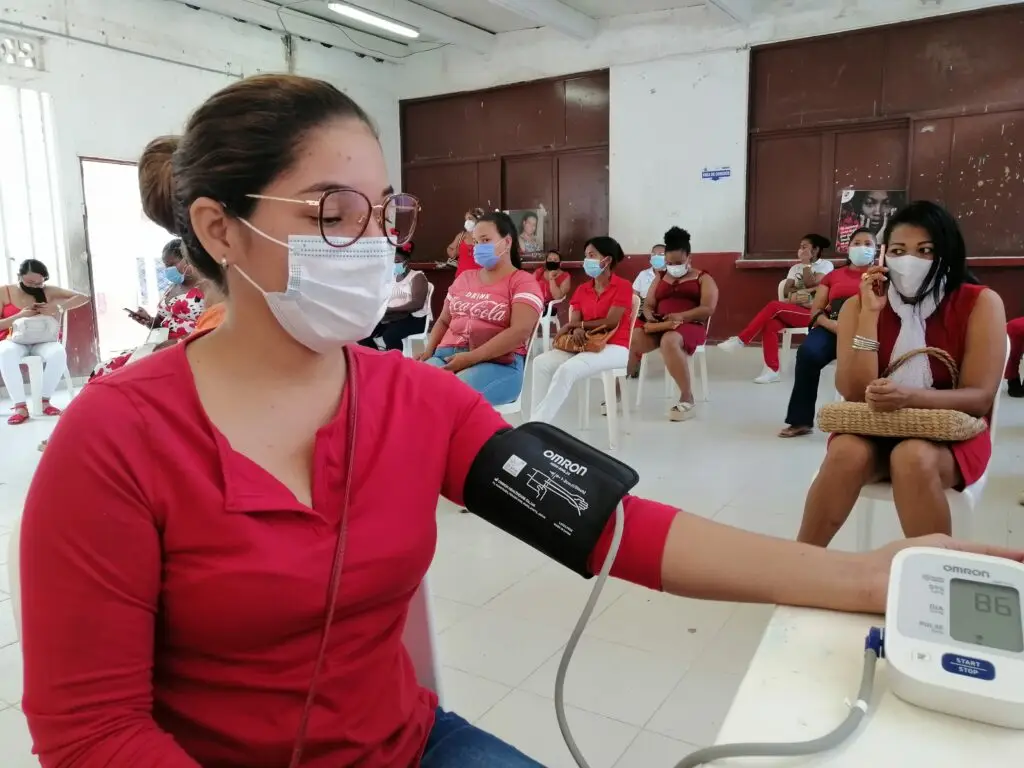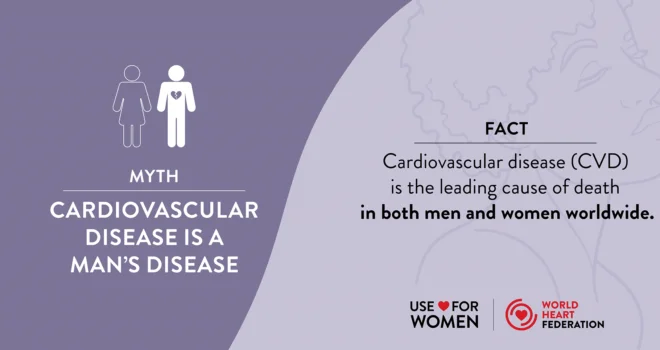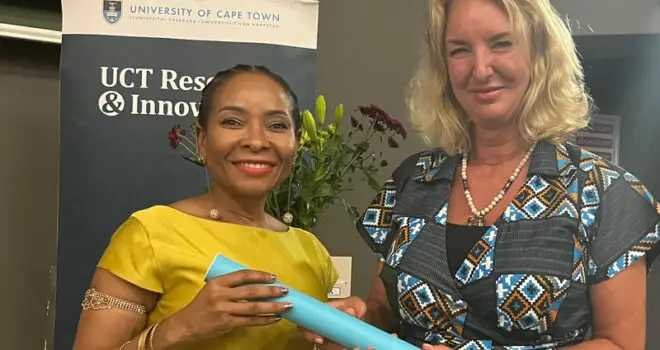This editorial was authored by WHF President Prof. Fausto Pinto and was first published in the International Journal of Cardiovascular Sciences on 16 July 2021.
This issue of the International Journal of Cardiovascular Sciences comes at a time when the medical and scientific community are finally addressing an important issue that has been somehow neglected over the years. That is gender equity when dealing with health and scientific issues. This relates not only with the medical differences between genders in many clinical conditions, but also how gender equity is still an enormous issue when we are dealing with health care forces, payments, access to leading positions and many other aspects,(1, 2) including citations in high-impact journals.(3)
Scientific societies have developed several initiatives in order to address some of these issues. At the European Society of Cardiology (ESC) several initiatives were organized over the years, including creation of a working group on “Women in Cardiology”, support of the “Leadership for women” Program organized by Oxford University, where several ESC female leaders were supported. Some Associations created specific committees, such as the Interventional Cardiology Association (EAPCI Women Committee) that was created in December 2013.(4) On International Women’s Day (8th March 2011), the European Society of Cardiology (ESC) launched a call for action to reduce the gender disparities that are currently resulting in women receiving second rate cardiovascular (CV) care.5 Studies published online on that day in the European Heart Journal (EHJ),(6, 7) the official journal of the ESC, showed a persistent under-utilisation of guideline recommended treatments for heart disease in women compared to men. Unfortunately not much has changed over the last years.(8)
In the USA, American Heart Association (AHA) and American College of Cardiology (ACC) have also developed very relevant initiatives and projects related with gender inequities and some of them have really helped to increase the awareness on the issue, such as the program “Go Red for Women”,(9) as well as helping shaping formal decisions to help promoting gender equity.
In a remarkable study (systematic review) from ACC’s Cardiovascular Disease in Women Committee, they concluded female physicians have better patient outcomes compared with their male peers, while female patients are less likely to receive guideline-recommended care when treated by a male physician.(10) While care disparities can be attributed to multiple factors, they may relate, in part, to the differences in how cardiovascular disease presents in women vs. men, the underrepresentation of female subjects in clinical trials and the lack of women’s health training in U.S. medical education.(11) To combat these findings, the study authors proposed three major recommendations, that I underline here:
1. Increasing Gender Diversity in the Physician Workforce
- Create interventions designed to address existing implicit and explicit biases which have limited opportunities for women in cardiovascular medicine.
- Change the culture of cardiology to be more female- and family-friendly.
- Increase representation of women in leadership positions in cardiovascular medicine.
2. Improving Gender- and Sex-Specific Medical Training
- Focus curricula on the presentation, diagnosis and treatment of women and men, and highlight specific differences.
- Include comprehensive behavioral health curriculum to address stress, depression and anxiety faced by women, as well as men, with cardiovascular disease.
- Teach patient-centered communication styles.
- Introduce implicit bias training.
3. Increase Research on the Role of Gender in Patient-Physician Relationships
- Focus on nonrandomized experimental designs that incorporate economic approaches with medical research.
The World Heart Federation (WHF) as a global organization in official relation with WHO is involved and encouraging several programmes where gender equity is a major concern. A good example is a join project with our members the Colombian Society of Cardiology and the Colombian Heart Foundation called “Act with a woman’s heart”.(12) The aim is to empower women health professionals and female leaders in black communities in Monteria, Cartajena and Apartado – underserved communities with high rates of NCDs among women – to prevent and manage heart disease. The main activities will include online training, health screenings and follow-up with a focus on hypertension, support groups for adherence to medication & lifestyle recommendations, and awareness campaigns. The project started in October 2020. By the end of 2021, we expect to reach 800-1000 women health professionals nationwide and 450 women health leaders in the three communities.

It is, therefore, fundamental to continue to implement measures that help to reduce and, hopefully, end with all the gaps related with gender inequities. This is a long standing commitment that the whole scientific community should subscribe and particularly their leadership should encourage, nurture and implement. A lot has been done but a lot more still needs to be done. It is up to all of us to ensure that will happen. This initiative of the International Journal of Cardiovascular Sciences is certainly on that way and deserves our recognition and gratitude to the Brazilian Cardiovascular Community.
References
1. Westerman S, Wenger NK. Women and Heart Disease, the Underrecognized Burden: Sex Differences, Biases, and Unmet Clinical and Research Challenges. Clin Sci. 2016;130(8):551-63. doi: 10.1042/CS20150586.
2. Kuehn BM. State of the Heart for Women. Circulation. 2019;139(8):1121-3. doi: 10.1161/CIRCULATIONAHA.118.039372.
3. Chatterjee P, Werner RM. Gender Disparity in Citations in High-Impact Journal Articles. JAMA Netw Open. 2021;4(7):e2114509. doi: 10.1001/jamanetworkopen.2021.14509.
4. EAPCI Women Committee [Internet] Brussels: Europe Society of Cardiology; c2021 [cited 2021 Jul 05]. Available from: https://www. escardio.org/Sub-specialty-communities/European-Association-of-Percutaneous-Cardiovascular-Interventions-(EAPCI)/Membership-and-Communities/The-EAPCI-Women-Initiative.
5. EAPCI Women Committee [Internet] Brussels: Europe Society of Cardiology; c2021 [cited 2021 Jul 05]. Available from: https://www. escardio.org/The-ESC/Press-Office/Press-releases/International-Women-s-Day-provides-a-red-alert-for-women-s-hearts.
6. Johnston N, Schenck-Gustafsson K, Lagerqvist B. Are We Using Cardiovascular Medications and Coronary Angiography Appropriately in Men and Women with Chest Pain? Eur Heart J. 2011;32(11):1331-6. doi: 10.1093/eurheartj/ehr009.
7. Bugiardini R, Yan AT, Yan RT, Fitchett D, Langer A, Manfrini O, et al. Factors Influencing Underutilization of Evidence-Based Therapies in Women. Eur Heart J. 2011;32(11):1337-44. doi: 10.1093/eurheartj/ehr027.
8. Sciomer S, Moscucci F, Dessalvi CC, Deidda M, Mercuro G. Gender Differences in Cardiology: Is it Time for New Guidelines? J Cardiovasc Med. 2018;19(12):685-8. doi: 10.2459/JCM.0000000000000719.
9. Go Red for Women [Internet] Dallas: American Heart Association; c2021 [cited 2021 Jul 5]. Available from: https://www.goredforwomen.org/en.
10. Lau ES, Hayes SN, Volgman AS, Lindley K, Pepine CJ, Wood MJ, et al. Does Patient-Physician Gender Concordance Influence Patient Perceptions or Outcomes? J Am Coll Cardiol. 2021;77(8):1135-8. doi: 10.1016/j.jacc.2020.12.031.
11. Do Female CV Disease Patients with Female Physicians Fare Better?[Internet] Washington: American College of Cardiology; c2021 [cited 2021 Jul 5]. Available from: https://www.acc.org/latest-in-cardiology/articles/2021/02/22/19/50/do-female-cv-disease-patients-with-female-physicians-fare-better.
12. Taking Action for Women’s Cardiovascular Health in Colombia [Internet] Geneva: World Heart Federation; c2021 [cited 2021 Jul 5]. Available from: https://world-heart-federation.org/news/taking-action-for-womens-cardiovascular-health-in-colombia/.


